12 Science Books to Add to Your 2025 Reading List
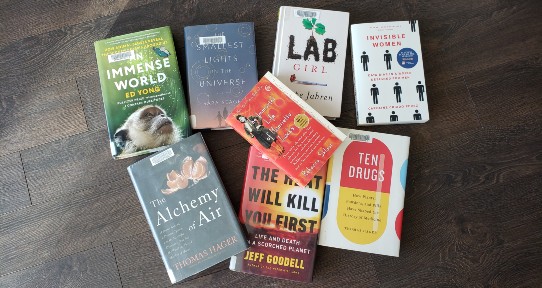
Looking to read more this year? Want to dive into areas of science you haven’t yet explored? Curious about how science has impacted civilization—and vice versa? We asked the experts (our faculty and staff) for their favourite popular science reads, and they delivered! Enjoy this list of 12 of their favourites—one for each month of the year!
The Immortal Life of Henrietta Lacks by Rebecca Skloot
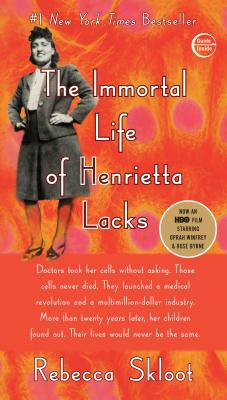
“I picked it up one spring break and started reading it and could not put it down – I read it straight through with a few short naps. For me, it WAS that good! It is a true account of science that has forever changed research, medicine, and bioethics.” – Jennifer Cobb, Chair and professor, biochemistry and microbiology
Henrietta Lacks was a poor Southern tobacco farmer whose cells were taken without her knowledge, and quickly became one of the most important tools in medicine. HeLa cells, the first “immortal” humans cells grown in culture, are used to help to cure disease, uncover the secrets of cancer and viruses, and have contributed to important advances in in vitro fertilization, cloning and gene mapping. The cells launched a multimillion-dollar industry, yet Henrietta and her family were completely unaware and never saw any of the profits. The Immortal Life of Henrietta Lacks tells the story of the Lacks family—a story inextricably connected to the dark history of experimentation on African Americans, the birth of bioethics, and the legal battles over whether we control the stuff we are made of.
This book was made into a major motion picture from HBO, starring Oprah Winfrey and Rose Byrne, in 2017. It was also recommended by Valerie Kerr, BCMB lab instructor, and Charmaine Wetherell, manager of the Health Core facility.
A Short History of Nearly Everything by Bill Bryson
“I read this over the past 6 months. It is nearly 20 years old but is very entertaining and informative of areas of science I never understood (and still don't). It is particularly informative of the lives and behaviours of scientists doing the work.” – Dante Canil, professor, earth and ocean sciences
In this book, Bill Bryson takes us on a journey to learn about the most intriguing and intractable questions that science seeks to answer. By attaching himself to the world’s most advanced (and often obsessed) archaeologists, anthropologists and mathematicians, Bryson tackles everything from the Big Bang to the rise of civilization, and seeks to understand how we from there being nothing at all to there being us. The book is sometimes profound, sometimes funny, and always a supremely clear and entertaining adventure into the realms of human knowledge.
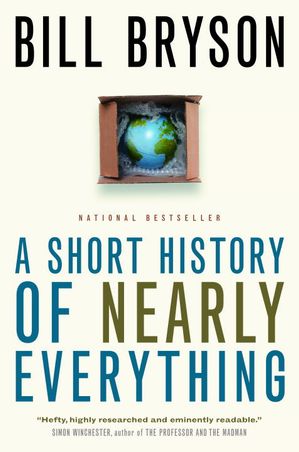
This book was also recommended by Valerie Kerr, BCMB lab instructor and Andy Fraass, assistant professor, earth and ocean sciences.
An Immense World: How Animal Senses Reveal the Hidden Realms Around Us by Ed Yong
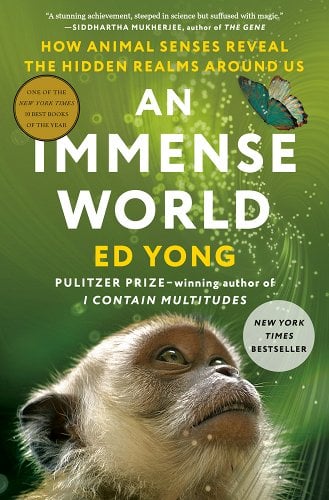
“It’s about how animals with their very different senses perceive their realities…one of my favorites and super well researched and written.” – Peter Constabel, professor of biology
The Earth teems with sights and textures, sounds and vibrations, smells and tastes, electric and magnetic fields. But every kind of animal, including humans, is enclosed within its own unique sensory bubble, perceiving but a tiny sliver of our immense world. In An Immense World, we learn about the senses of other animals, encountering turtle’s that can track the Earth’s magnetic fields, fish that fill rivers with electrical messages, giant squid eyes that evolved to see sparkling whales, and much more. We listen to stories of pivotal discoveries in the field, while looking ahead at the many mysteries that remain unsolved.
“It will keep you curious and you’ll be surprised to learn how people actually shape the history of science.” – Violeta Iosub, associate teaching professor, chemistry
Behind every landmark drug is a story. It could be an oddball researcher’s genius insight, a catalyzing moment in geopolitical history, a new breakthrough technology, or an unexpected but welcome side effect discovered during clinical trials. Piece together these stories, and you can trace the evolution of our culture and the practice of medicine. By examining the stories behind ten different drugs, Hager tells a captivating story of medicine.
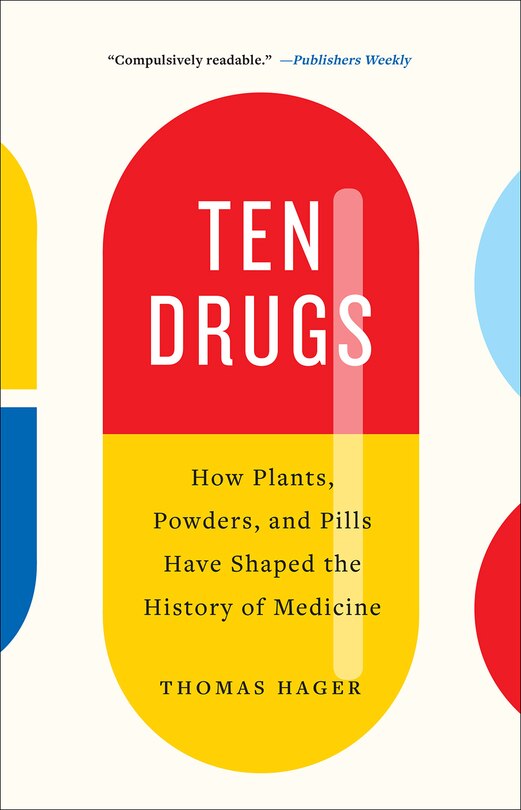
Algorithms to Live By by Brian Christian and Tom Griffiths

“A fun and fast read on the application of computer algorithms to everyday problems. It provides hard answers to pressing problems such as "how many persons should you date before committing to a long term relationship?" and "what is the optimal approach to finding pairs of socks when they come from a dryer?” It was amusing and insightful - not heavy on mathematics, but good for developing intuition.” – Peter Loock, professor of chemistry and physics and former Dean.
In a dazzlingly interdisciplinary work, Brian Christian and Tom Griffiths show how algorithms developed for computers also untangle very human questions. They explain how to have better hunches and when to leave things to chance, how to deal with overwhelming choices and how best to connect with others. From finding a spouse to finding a parking spot, from organizing one’s inbox to peering into the future, Algorithms to Live By transforms the wisdom of computer science into strategies for human living.
Chaos: Making a New Science by James Gleick
"The science and mathematics of how simple rules give rise to very complicated phenomena, and the history of these discoveries in the second half of the 20th century." – David Goluskin, associate professor of mathematics
Chaos reveals the science behind chaos theory, one of the most significant waves of scientific knowledge in our time. From Edward Lorenz’s discovery of the Butterfly Effect, to Mitchell Feigenbaum’s calculation of a universal constant, to Benoit Mandelbrot’s concept of fractals, which created a new geometry of nature, Gleick’s engaging narrative focuses on the key figures whose genius converged to chart an innovative direction for science. Gleick makes the story of chaos theory not only fascinating but also accessible to beginners.
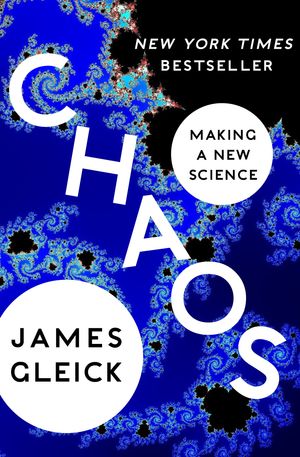
Lab Girl by Hope Jahren
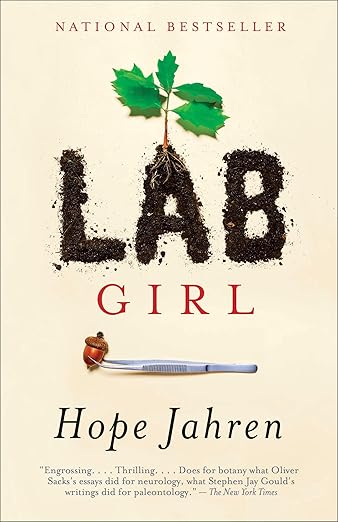
“It is a fascinating mixture of essays and memoir. She writes incredibly well about what experimental science really is and also interprets academia for the layperson.” – Lisa Rosenberg, professor of chemistry
Geobiologist Hope Jahren has spent her life studying trees, flowers, seeds, and soil. In Lab Girl, she takes us back to her Minnesota childhood, where she spent hours in unfettered play in her father’s college laboratory. She tells us how she found a sanctuary in science, learning to perform lab work “with both the heart and the hands.” She introduces us to Bill, her brilliant, eccentric lab manager. And she extends the mantle of scientist to each one of her readers, inviting us to join her in observing and protecting our environment. Warm, luminous, compulsively readable, Lab Girl vividly demonstrates the mountains that we can move when love and work come together.
The Heat Will Kill You First by Jeff Goodell
“This book is an incredible mix of science and storytelling that makes it an enjoyable read, even when the topic is anything but enjoyable. This is a must-read climate book that I can’t stop talking about.” - Nicole Crozier, communications officer
The Heat Will Kill You First is about the extreme ways in which our planet is changing and how heat is the first order threat that drives all other impacts of the climate crisis. Through a combination of the latest scientific insight mixed with on-the-ground storytelling, the book explores how heat impacts everything, from our food supply to disease outbreaks, to housing and wildfires. Extreme heat will dramatically change the world as we know it, and as the temperature rises, it is revealing fault lines in our governments, our politics, our economy and our values.
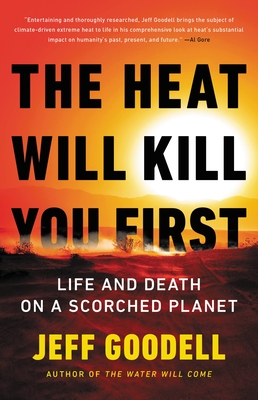
Napoleon’s Buttons: 17 Molecules That Changed History by Penny Le Couteur and Jay Burreson
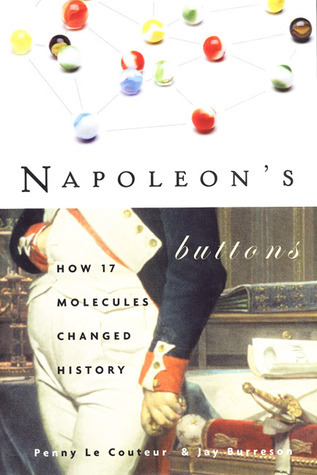
“I normally stay away from science for my leisure reading, but I did really enjoy this one a number of years back. I enjoy history nonfiction more than science nonfiction, and this one really had enough of the former to hold my interest.” – Matt Moffitt, professor of chemistry
Napoleon's Buttons is the fascinating account of seventeen groups of molecules that have greatly influenced the course of history. These molecules provided the impetus for early exploration, resulted in grand feats of engineering and spurred advances in medicine and law; they determined what we now eat, drink, and wear. With lively prose and an eye for colorful and unusual details, Napoleon’s Buttons offers a novel way to understand the shaping of civilization and the workings of our contemporary world.
Invisible Women: Data Bias in a World Designed for Men by Caroline Criado Perez
“A fascinating dive into the many ways in which society and technology are designed without adequate data on women. From how transit routes are planned to the dosage of Tylenol we should take, so many standard designs fail to account for the fact that there are inherent differences between genders. Equal parts riveting and provoking. A must read for everyone, but especially those in STEM and Social Sciences who can pressure those running studies to gather data on women! – Siobhan McGoldrick, senior lab instructor, earth and ocean sciences
Data is fundamental to the modern world. From economic development to health care to education and public policy, we rely on numbers to allocate resources and make crucial decisions. But because so much data fails to take into account gender, because it treats men as the default and women as atypical, bias and discrimination are baked into our systems. Invisible Women examines the home, workplace, public square, doctor’s office, and more, and unearths a dangerous pattern in data and its consequences on women’s lives.
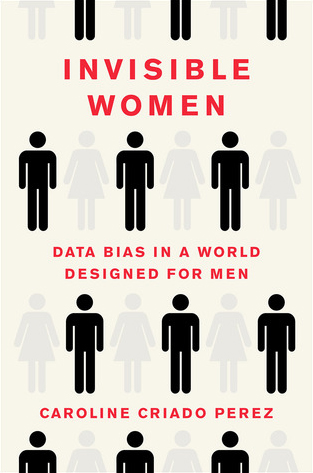
The Smallest Lights in the Universe by Sara Seager
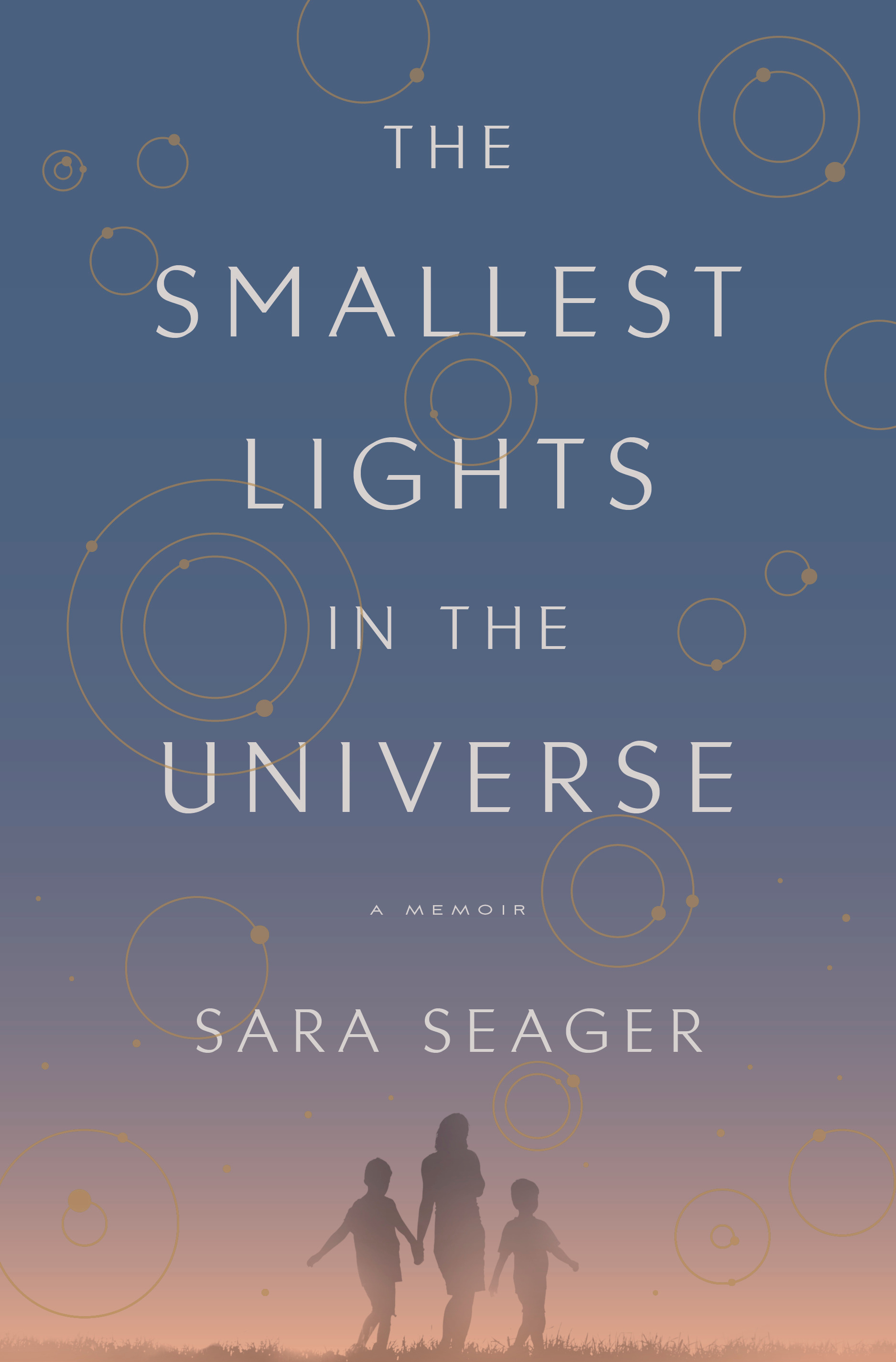
“Sara is a Canadian who studies planets in other galaxies and ours, and the story is about her career, how it developed (with an amusing anecdote about UBC) and more to the point, how it impacted her personal life. The science story is written well and folks who aren't astronomers will find the story about distant planets easy to read and very informative. The personal story is at times very funny, at times heartbreaking, but always engaging.” – Ross Chapman, professor emeritus, earth and ocean sciences
Sara Seager has always been in love with the stars: so many lights in the sky, so much possibility. Now a pioneering planetary scientist, she searches for exoplanets--especially that distant, elusive world that sustains life. But with the unexpected death of Seager's husband, the purpose of her own life becomes hard for her to see. As she struggles to navigate her life after loss, Seager takes solace in the alien beauty of exoplanets and the technical challenges of exploration, while at the same time, discovering earthbound connections that feel every bit as wondrous.
The Alchemy of Air by Thomas Hager
“One of my favourites. Relatively brief, super engaging, and scientifically accurate, it describes the invention of nitrogen fixation in the early 1900s and the broader historical/colonial/wartime context.” – David Leitch, associate professor of chemistry
At the dawn of the twentieth century, humanity was facing global disaster: Mass starvation was about to become a reality and a call went out to the world’ s scientists to find a solution. This is the story of the two men who found it: brilliant, self-important Fritz Haber and reclusive, alcoholic Carl Bosch. Together they discovered a way to make bread out of air, built city-sized factories, and saved millions of lives. But their triumph came at a price we are still paying, as the Haber-Bosch process was also used to make the gunpowder and explosives that killed millions during the two world wars.
The Alchemy of Air is the extraordinary, previously untold story of a discovery that changed the way we grow food and the way we make war–and that promises to continue shaping our lives in fundamental and dramatic ways.
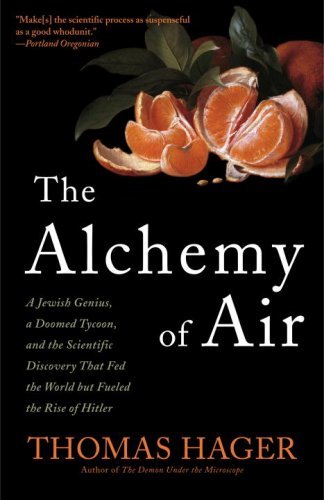
Do you have a favourite popular science book? Let us know by sending an email to Valeria Bazan, Alumni Relations Officer, at sciencealum@uvic.ca. Maybe we'll feature you on a future list!
